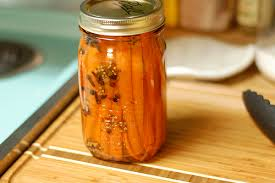 Man, I love the game of tag. And I’m not talking about tagging myself in Facebook photos. I’m talking about that classic game that involves one or more players chasing other players in an attempt to “tag” or touch them with their hands. Once tagged, that player is now “It” and responsible for chasing someone else down to tag. Growing up without playing tag is, to me, like going to Paris and not seeing the Eiffel Tower – simply sacrilegious. While traditionally thought of as a playground game for children, there are so many benefits to this simple game that it’s a great way for the entire family to get moving.
Man, I love the game of tag. And I’m not talking about tagging myself in Facebook photos. I’m talking about that classic game that involves one or more players chasing other players in an attempt to “tag” or touch them with their hands. Once tagged, that player is now “It” and responsible for chasing someone else down to tag. Growing up without playing tag is, to me, like going to Paris and not seeing the Eiffel Tower – simply sacrilegious. While traditionally thought of as a playground game for children, there are so many benefits to this simple game that it’s a great way for the entire family to get moving.
Requiring no equipment, no teams, and no score keeping, tag can be played quickly and almost anywhere without preparation. The start and stop motion of the game also results in tremendous aerobic benefits and improvements in speed, agility, and endurance. The fast pace of the game can be tiring in just 15-20 minutes. And, the fun of the game satisfies even those who dread the chore of just running.
The Center for Disease Control and Prevention recommends 1 hour of physical activity each day for children and adolescents. Adults need 150 minutes per week of aerobic activity. Get some of those needed physical activity minutes from a family game of tag. Get creative and make safe zones or bases. Try some of the variations below to mix it up:
Categories. The “It” chooses a category. Players can avoid being tagged by sitting down on the ground and shouting an item that fits in that category just before being tagged. For example, if the category was “fruit”, a player would avoid a tag by sitting on the ground and saying “apples”. Players are safe as long as they are on the ground but they can only sit on the ground for 10 seconds and can only shout a category and sit on the ground when “It” is 10 feet away or closer.
Freeze Tag Just like regular tag except that when someone is tagged, they are frozen and can’t move. There are many variations as how to get unfrozen – getting tagged by another player that isn’t “It”, having someone crawl between their legs, etc. Once someone has become frozen three times, he or she becomes the new “It”.
Bumper Tag Just like regular tag except that instead of tagging with hand, the “It” must tag with his or her hips. Remind players that all that is needed is a little bump. Nobody should be purposefully knocked to the ground.
Blob Tag Requires multiple people. When tagged, the player joins hands with “It” to create a large blob. Once the blob has 4 people, it can split into groups of two only and may split into groups of two any time thereafter. The person left without being tagged is “It” and the game starts again.
Fainting Goat Tag In this version, the “It” is called the Shepard. Whoever the Shepard touches becomes the new Shepard. The other players are “goats” and they can fall to the ground to avoid being tagged but they are only safe on the group for up to 10 seconds. The goat can only fall to the ground when the Shepard is 10 feet away or closer.
Dead Ant Tag Requires at least 6 players. In this version, once tagged, the player must lay down with both hands and feet sticking straight up, like a dead ant. In order for the dead player to come alive, four people must tag one limb each. Once a person has been a dead ant three times, he or she is now “It”.
Shadow Tag Instead of tagging the person, “It” tags someone by stepping on the shadow of other players. When a person’s shadow is stepped on, they are frozen until another player steps on their shadow.
Hug Tag Just like regular tag except that players can be safe from being tagged if they are hugging someone else. They can only remain in a hugged position for 5 seconds.
Werewolf Tag One player is selected to hide. The other players search for the player. When one of the players finds the hiding player, they scream out “WEREWOLF!” The werewolf comes out of hiding and chases after all the other players. If caught, that person becomes a werewolf as well. The last person not tagged becomes the werewolf for the next round.
 Fermented foods are getting lots of attention these days. Research has suggested that there are benefits to consuming the happy bacteria in fermented foods, including probiotics. The bacteria appear to improve digestion, boost immunity, and possibly even help with weight management. Exactly how remains unclear and how much be eaten in order to reap these potential benefits. Regardless, it may be worth incorporating a few fermented foods into your diet, such as tempeh, miso, sauerkraut, kefir, yogurt, kombucha, and kimchi. Pickled fruits and vegetables provide probiotic benefits as well but only in foods pickled in brine, not vinegar, and in unpasteurized pickled products.
Fermented foods are getting lots of attention these days. Research has suggested that there are benefits to consuming the happy bacteria in fermented foods, including probiotics. The bacteria appear to improve digestion, boost immunity, and possibly even help with weight management. Exactly how remains unclear and how much be eaten in order to reap these potential benefits. Regardless, it may be worth incorporating a few fermented foods into your diet, such as tempeh, miso, sauerkraut, kefir, yogurt, kombucha, and kimchi. Pickled fruits and vegetables provide probiotic benefits as well but only in foods pickled in brine, not vinegar, and in unpasteurized pickled products.
